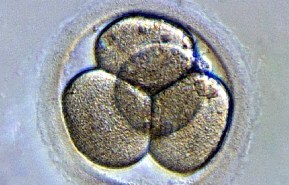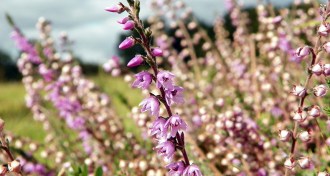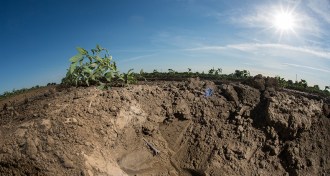News
-
 Health & Medicine
Health & MedicineSugar industry sought to sugarcoat causes of heart disease
Sugar industry has long, sweet history of influencing science.
By Laura Beil -
 Earth
EarthNuclear blasts, other human activity signal new epoch, group argues
A group of scientists will formally propose the human-defined Anthropocene as a new epoch in Earth’s geologic history within a few years, probably pegging the start date to nuclear tests.
-
 Genetics
GeneticsNew era of human embryo gene editing begins
Gene editing of viable human embryos is happening, in and out of the public eye.
-
 Plants
PlantsNarrowed plumbing lets flower survive summer cold snaps
Ice barriers help alpine plants save their flowers during summer cold snaps.
-
 Genetics
GeneticsEndurance training leaves no memory in muscles
Unlike strength training, endurance workouts left no genetic trace months later, calling into question idea of a general muscle memory.
-
 Earth
EarthNatural ally against global warming not as strong as thought
Soils may take in far less carbon by the end of the century than previously predicted, exacerbating climate change.
-
 Genetics
GeneticsSingle exodus from Africa gave rise to today’s non-Africans
Genetics and climate studies differ on when modern humans left Africa.
-
 Ecosystems
EcosystemsShrinking sea ice threatens natural highways for caribou, plants
As Arctic sea ice declines, Peary caribou or plants risk getting stranded when their frozen highways thaw.
By Susan Milius -
 Health & Medicine
Health & MedicineActivity trackers fall short in weight-loss trial
In a two-year study, wearable activity monitors didn’t help young adults lose more weight.
-
 Earth
EarthPrimordial continental crust re‑created in lab
Compressing rocks from an ocean plateau at high temperatures and pressures re-creates the formation of Earth’s first continental crust.
-
 Astronomy
AstronomyVanished star may be first known failed supernova
A star that vanished in another galaxy might be the first confirmed case of a failed supernova — and the birth of a black hole.
-
 Quantum Physics
Quantum PhysicsTaming photons, electrons paves way for quantum internet
Scientists are gearing up to create supersecure global quantum networks.